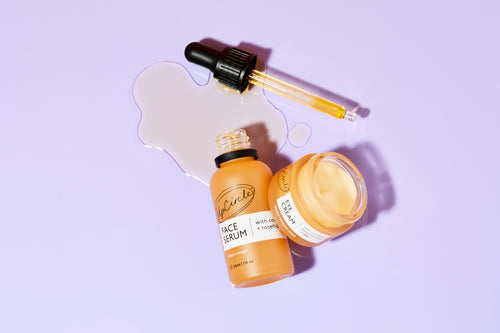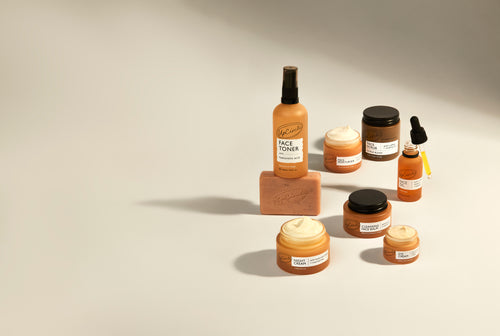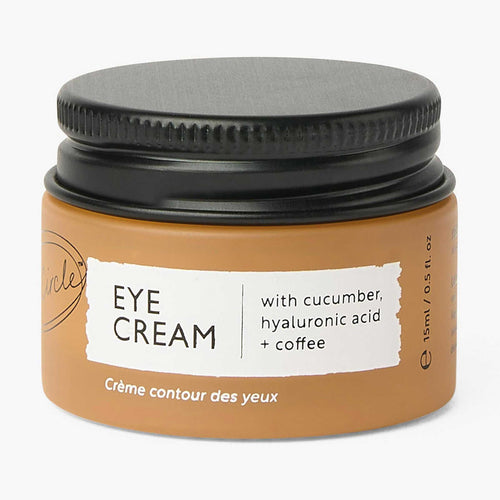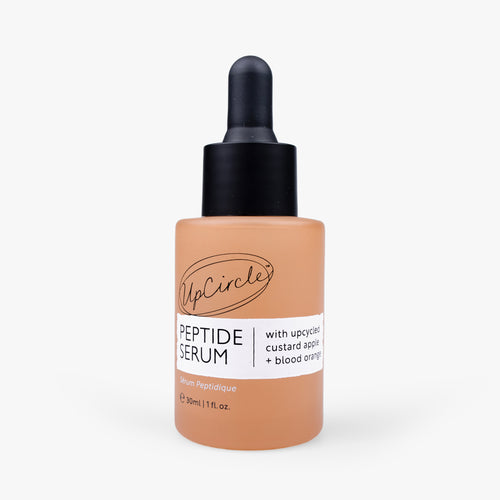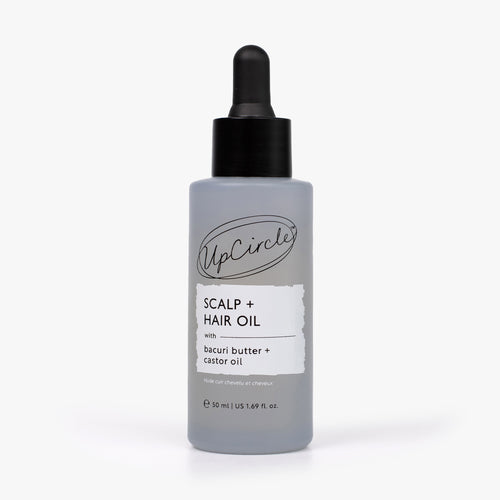Summer is finally on the way. The blue skies are above us, the spring flowers are saying goodbye, and thoughts of our summer holidays are looming large. The summer sunshine brings lots of benefits, but it also brings the risk of skin damage.
If you’re planning on spending time in the sun, then you’ll know that wearing sunscreen is essential. Sun protection is important all year around, but it’s particularly important in the summer. But did you also know that there are two main types of sunscreens – chemical and mineral?
Both chemical and mineral sunscreens have their pros and cons, but which should you choose? With 61% of UK sunscreen users reporting that they don’t understand how a chemical and mineral SPF product differs, we wanted to break down these differences, so you’ll understand which offers the best protection for your skin type and lifestyle. We also look at the wider environmental concerns, where mineral sunscreen wins hands down.
Read on to learn more about the benefits of each and how to tell if your sunscreen is chemical or mineral.
What is chemical sunscreen?
Chemical sunscreens use non-natural components that work by absorbing damaging UV rays and dissipating them before they cause harm to your skin.
The most used chemicals include oxybenzone, avobenzone, and octinoxate and while their names are tricky to pronounce, these ingredients work like a sponge to soak up the harmful ultraviolet rays.
What is mineral sunscreen?
Mineral sunscreen contains two main active ingredients – zinc oxide and titanium oxide – which protect your skin by creating a physical barrier that reflects the sun’s rays. Your skin doesn’t absorb the rays in the way that is enabled with chemical sunscreen or no sunscreen at all.
For example, take our broad-spectrum mineral sunscreen. It is formulated with environmentally safe ingredients such as the highest quality non-nano zinc oxide that blends in seamlessly to protect skin and leave nothing but a natural glow.
Mineral sunscreen – also referred to as ‘physical sunscreen’ – helps to minimise the effects of harmful UVA and UVB rays while using fewer ingredients than their chemical cousins. This makes mineral sunscreen a better choice for those with sensitive or acne-prone skin.
It’s also, by its very nature, natural. This means it is more suitable for anyone wanting to avoid the chemicals in chemical sunscreen either for environmental concerns, or because they are concerned about long term effects and exposure.

How to tell if a sunscreen is mineral or chemical
You can determine the type of SPF by taking a quick glance at the packaging and checking the active ingredients. Chemical sunscreens are also typically runnier and more transparent in consistency than mineral SPFs and won’t leave a white film on the skin after application.
Mineral sunscreens are typically thicker and require some more rubbing in. That said, we have spent years developing a mineral sunscreen that doesn’t leave a white cast on the skin.
Why choose a chemical sunscreen?
Chemical sunscreens are fast-absorbing and dry with an almost invisible finish, making them a good choice for anyone who wears SPF daily and wants to avoid the tell-tale white marks on their clothes and skin.
Chemical SPF tends to be lightweight and non-greasy, providing all-around defence against UVA and UVB rays. Most chemical sunscreens are non-comedogenic and should be applied as the final step of your morning skincare routine for full protection.
The most commonly available sunscreens tend to be chemical-based, and while they are suitable for most skin types, some formulas can irritate people with very dry or sensitive skin.
Why choose a mineral sunscreen?
The active ingredients in mineral SPFs are not absorbed into the epidermis, which makes them more suited to those with skin irritations or acne-prone skin.
Unlike chemical sun cream, which must be fully absorbed into the skin before they become effective, mineral sunscreens are effective as soon as they are applied. So, if you can’t wait to get in the sun, choose a mineral sunscreen to minimise the risk of photo-ageing and sunburn!
Mineral sunscreens also win hands down when it comes to the fact they are natural. You know exactly what you are putting on your skin, rather than a complex list of chemicals whose names you don’t recognise. There’s not enough evidence out there yet, but to give some idea, American Food and Drug Administration has only declared zinc oxide and titanium dioxide (which is typically used in mineral sunscreen) to be safe.
Evidence is emerging that key ingredients in chemical sunscreen are endocrine disruptors and may not be safe, particularly in the longer term. These ingredients are also harmful to marine life when you swim in the sunscreen, or when your shower water ends up in the sea.
Being a sustainable brand, there was no debate that our SPF must be environmentally friendly. As well as being planet-friendly, mineral sunscreen is also child safe. When we think of age inclusiveness, we often think about more mature skin but what about our children? Well, you’re in luck because our mineral formula makes our SPF suitable for you AND your kids to use too!

Which sunscreen offers the best water resistance?
On sizzling summer days when you plan on diving into the pool, you'd probably like to know how your sunscreen will hold up when it gets wet.
In essence, both mineral and chemical sunscreens are water-resistant and will stay on the skin after it is applied. Whether you prefer a mineral or chemical SPF, choose one that states ‘water-resistant’ on the label to ensure proper UVA/UVB protection – and reapply after swimming.
Does mineral sunscreen offer better protection than chemical sunscreen?
Mineral sunscreens protect you from both UVB and UVA rays, whereas chemical sunscreens typically do not. In simple terms, Ultraviolet B (UVB) radiation causes sunburn, darkening and thickening of the outer layer of the skin which can lead to health issues like skin cancer. Ultraviolet A (UVA) damages your skin by causing all forms of skin ageing, including wrinkles. It is important that sunscreen protects you from both!
Mineral sunscreens contain zinc oxide which is one the most effective blockers of both UVB and UVA rays and unlike chemical sunscreens, mineral UV-filters also don’t break down in sunlight as some chemical UV-filters do. Zinc oxide, for example, is highly photostable, which means it doesn’t lose its protective power under exposure to UV light
Is mineral or chemical SPF better for the planet?
The natural ingredients in mineral SPF are generally thought to be more environmentally friendly than chemical sunscreen.
Some chemical sunscreens contain ingredients such as oxybenzone, octinoxate, and octocrylene, which can be harmful to marine life. These chemicals could be released into the ocean when you swim, so if sustainable beauty is something you are passionate about then mineral sunscreens are the obvious choice.
For example, chemical sunscreen can damage coral reefs. Healthy coral reefs are one of the most valuable ecosystems on earth. They provide billions of incomes in economic and environmental services such as food, coastal protection, and tourism. However, when the active ingredients in chemical sunscreen are washed off in the ocean, they can disrupt coral reproduction and growth cycles and ultimately contribute to coral bleaching.
Is chemical sunscreen cheaper than mineral SPF?
If budget is a factor, then chemical sunscreens are often cheaper. But this is changing. Over the last few years, mineral sunscreen has grown in popularity, so it’s now becoming easier to purchase affordable alternatives.
Want to know more about sunscreen?
Whether you opt for a chemical or mineral sunscreen, the key to protecting your skin is to apply your SPF every day – even on grey days – and reapply it frequently when spending extended periods outside in the glorious summer sun.
For more info on staying safe in the sun this summer, read our UpCircle guide to SPF and discover how to integrate sun protection into your skincare routine this summer.
If you are as excited at the prospect of a long, hot summer as we are – visit our UpCircle shop to stock up on your summer skincare products. Try our award-winning SPF 25 Mineral Sunscreen to enjoy the sun, sea and sand with skin that you’re happy in and that is protected!

